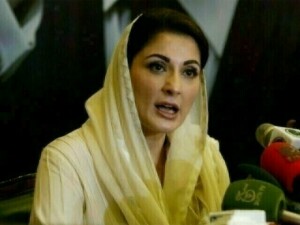EDITORIAL: Better late than never, so if the commerce ministry’s “brainstorming sessions” can really help identify reasons for the recent plunge in exports and then go on to find ways of increasing export revenue, then the exercise will not be a headline-grabbing waste of time; like so many previous initiatives.
Indeed, it is a matter of grave concern that except for the Americas, the EU, and some African countries, Pakistan’s exports are declining across the world, especially Asia (down 20 percent in the first quarter alone).
It should worry the government that exports to China, Vietnam, Malaysia, Indonesia, Turkey, and a number of other countries are declining. Nobody needs to be reminded of the fragility of the moment, of course, since increasing exports along with beefing up forex reserves is central to the continuation and ultimate success of the ongoing EFF (Extended Fund Facility) with the IMF (International Monetary Fund).
Yet first the country missed tax collection targets right at the beginning of the bailout facility, and now export earnings are on a downward trajectory as well.
One would have hoped that the commerce ministry’s huddle would yield a quantifiable, target-specific plan of action. But it is disappointing that little except the usual politically correct statements have reached the press and the public so far.
The commerce minister didn’t exactly put any concerns to rest by simply reminding everyone that “the success of our economy depends on a strong export base” nor inspire much confidence by emphasising “the importance of executing an export-led growth strategy”.
One of the biggest problems, which has never been addressed at the top, is that the country simply exports surplus production. It is still without a model designed to produce to export, because that requires scouting international markets for items in demand that we can produce, given our own comparative advantages. It says a lot that the last time such an extensive exercise was undertaken was in the time of General Musharraf – widely dismissed by democratic circles as an authoritarian dictator – when the head of state personally went around the world to market Pakistani exports. And it’s a shame that none of our democratic rulers over the last couple of decades has bothered with such outreach.
There is also the obvious fact that there has never been any worthwhile effort to add value to the traditional export basket. And even the few things that we do export – chiefly textiles and agri products – are often compromised by the government’s own policies like unnecessary confusion about support prices and bureaucratic incompetence and corruption causing needless delays in tax refunds, etc.
The government should also be careful about setting unrealistic targets when its own reactionary policies undermine the very sectors it would like to bolster as premier export earners. Reports that IT exports alone will fetch around USD 25 billion in annual export revenue in five years impress nobody, least of all tech sector professionals, when the government bends over backwards to restrict IT activity in the country. Its resort to firewalls and internet shutdowns for petty political gains has already harmed the country’s IT professionals, many of whom have been forced to relocate just to protect their earnings and professional growth.
Simply wishing for an increase in exports and revenue, when the state itself hinders meaningful progress, is a self-defeating exercise. Therefore, while the commerce minister’s concern is appreciated, his brainstorming sessions would have to be far more targeted if they are to ever deliver the kind of results that matter.
Otherwise, exports will continue to languish at a level where often remittances contribute more to the current account, which would make it difficult to meet the many tough conditions of the IMF programme, let alone turn the economy around by embarking on the path of recovery.
Copyright Business Recorder, 2024






















Comments
Comments are closed.